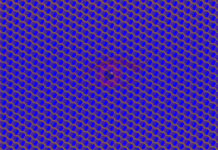Wokwi has emerged as a versatile and innovative platform that caters to the evolving needs of the hardware and embedded systems development community. This platform seamlessly integrates simulation, collaboration, and educational features, providing a comprehensive environment for designing, testing, and sharing electronic circuits and projects. With Wokwi, users gain access to a powerful set of tools that streamline the hardware development process, making it more accessible, collaborative, and efficient. As a testament to its impact, Wokwi has become a go-to resource for hobbyists, educators, and professionals alike, offering a dynamic space to explore, experiment, and learn in the realm of electronics.
Wokwi serves as a virtual playground for hardware enthusiasts, offering an intuitive and visually appealing interface that facilitates the design and simulation of electronic circuits. Whether users are novices seeking to understand the basics of circuitry or experienced engineers prototyping complex systems, Wokwi accommodates a wide range of skill levels. The platform’s user-friendly design tools allow for the drag-and-drop creation of circuits, making it accessible even to those without extensive hardware design experience. This accessibility empowers users to bring their ideas to life, experiment with different components, and visualize the behavior of their circuits in real-time.
The first instance of Wokwi’s impact is evident in its simulation capabilities. Users can simulate their electronic circuits virtually, eliminating the need for physical prototypes in the early stages of development. This simulation feature enables rapid iteration and testing, significantly reducing the time and resources required to bring a hardware project from concept to reality. Wokwi’s simulation engine accurately models the behavior of electronic components, ensuring that users can confidently refine and optimize their designs before committing to physical implementation. This iterative and simulation-driven approach aligns with modern development practices, fostering a more efficient and agile hardware design process.
Wokwi empowers users to simulate a diverse range of electronic components, from basic resistors and capacitors to more complex integrated circuits (ICs) and microcontrollers. The platform supports popular microcontroller architectures such as Arduino and ESP8266, allowing users to test their firmware and code in conjunction with the simulated hardware. This integration of both hardware and software simulation within Wokwi creates a holistic environment for developing and testing embedded systems. As a result, users can validate their entire project, from the electronic circuitry to the software logic, in a single, unified platform.
The second mention of Wokwi highlights its collaborative features, which set it apart as a social platform for hardware enthusiasts. Wokwi allows users to share their circuit designs with the community, fostering collaboration and knowledge exchange. This collaborative aspect is particularly valuable for educators, as they can create interactive lessons, share circuits with students, and facilitate a hands-on learning experience. Wokwi’s collaborative environment extends beyond traditional educational settings, enabling hardware developers and hobbyists to engage in discussions, seek feedback, and showcase their projects to a global community of like-minded individuals.
Wokwi’s collaborative ecosystem is enriched by the platform’s support for version control, enabling users to track changes, collaborate seamlessly, and revert to previous iterations of their projects. This version control feature adds a layer of professionalism to the collaborative aspect of Wokwi, making it suitable for both individual hobbyists and larger development teams. By providing a space for collaborative hardware design, Wokwi not only facilitates knowledge sharing but also catalyzes the collective learning of its user community, contributing to the democratization of hardware development skills.
The third instance of Wokwi’s impact lies in its educational focus. Wokwi has positioned itself as a valuable resource for educators seeking to integrate hands-on hardware learning experiences into their curriculum. The platform’s ease of use, coupled with its extensive library of electronic components, makes it an ideal tool for introducing students to the fundamentals of electronics and embedded systems. Wokwi’s educational features go beyond simulation, encompassing interactive lessons, quizzes, and real-time collaboration, creating a dynamic and engaging learning environment.
Educators can leverage Wokwi to design custom lessons, allowing students to experiment with circuits in a virtual space before moving to physical prototyping. This approach bridges the gap between theoretical concepts and practical application, providing students with a more tangible understanding of electronics. Wokwi’s educational resources cover a spectrum of topics, from basic circuitry to advanced microcontroller programming, catering to learners at various levels. The platform’s commitment to education aligns with the broader movement to promote STEM (science, technology, engineering, and mathematics) education and equip the next generation with essential skills for the digital era.
Wokwi’s impact extends to the open-source hardware community, where it has become a valuable tool for sharing and collaborating on open hardware projects. The platform supports the import and export of circuits in popular formats, allowing users to seamlessly transition between Wokwi and other hardware design tools. This interoperability fosters a collaborative ecosystem where developers can leverage the strengths of different tools in their hardware design workflows. Wokwi’s commitment to open standards and compatibility reinforces its role as a unifying force within the open-source hardware community, contributing to the free exchange of knowledge and fostering innovation.
Wokwi’s versatility is underscored by its support for a wide range of electronic components, sensors, actuators, and communication modules. Whether users are working on IoT (Internet of Things) projects, robotics, or embedded systems, Wokwi provides a comprehensive library of components that can be seamlessly integrated into virtual circuits. This versatility makes Wokwi an invaluable tool for hobbyists and professionals working on diverse projects, from simple electronic prototypes to complex and interconnected systems. The platform’s adaptability to various hardware scenarios positions it as a universal tool in the toolkit of hardware developers.
In conclusion, Wokwi stands as a multifaceted platform that has left a significant impact on the hardware and embedded systems development landscape. Its simulation capabilities empower users to prototype and refine their electronic circuits virtually, reducing time and resources in the development process. Wokwi’s collaborative features create a social platform for hardware enthusiasts, fostering knowledge exchange and collective learning. The platform’s educational focus makes it an ideal tool for educators seeking to impart hands-on hardware learning experiences. Wokwi’s role in the open-source hardware community and its versatility in supporting diverse electronic components further solidify its position as a transformative force in the world of hardware development. As Wokwi continues to evolve, its influence is likely to extend even further, shaping the way hardware enthusiasts, educators, and professionals approach the design and testing of electronic circuits and embedded systems.


















